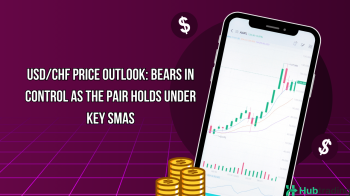In life, we often develop repetitive behaviors: washing our faces when we wake up (hopefully!), eating lunch around midday, washing our hands after meals, and going to bed at a consistent time. These daily routines help us navigate our day more smoothly.
As creatures of habit, we also develop patterns in forex trading. Over time, we establish a routine in how we process and react to the information presented to us. For instance, some people may lie to their partners impulsively, even when they haven’t done anything wrong, simply to avoid a long conversation. Even a child might tell a small lie to avoid getting in trouble!
They aren’t inherently dishonest, but they’ve conditioned themselves to respond in a certain way when faced with a specific situation.
How does this relate to trading?
I know this might make you cringe, but take a moment to look at the worst trade you’ve ever made in your journal. Review the trade setup you saw, reflect on what went wrong, and ask yourself, “Why on earth did I take that trade? What was I thinking?”
More importantly, “Was I even thinking?”
Chances are, you took that trade almost automatically, driven by a familiar setup rather than by the actual market conditions. In this case, your decision was influenced more by your own thought patterns than by what the market was signaling.
Your worst trade isn’t necessarily the one with the biggest loss. It could be a missed opportunity, when you hesitated to take a trade that might have been your best of the year. Or it could be when you locked in profits too soon, instead of letting the trade run its course. You might have backed out because of a fear of losing, even though the market was clearly signaling that the trade had potential.
Another harmful thought pattern is when you become indifferent to losses, blindly chasing the next trade to make up for what you lost. This can lead to revenge trading, where you stubbornly believe that you’ll eventually beat the market. If not addressed, this can snowball into large drawdowns.
The typical response to a bad trade is to simply shrug it off. Much like the sting of being rejected in high school (though, hopefully not too often), it’s easier to bury the memory of a bad trade, tell yourself you’ll do better next time, and move on. But that’s not enough!
You must truly examine the details of your bad trades. If you don’t, you’re likely to repeat the same mistakes. Even if it’s painful or discouraging, you have to force yourself to open your trade journal and ask tough questions like: “Why did I take this trade?” “Did I follow valid signals when I closed my position?”
And no, “How you doin’?” might not be the best pick-up line, but you get the idea!
By reflecting on the emotions you felt during these bad trades, you may spot negative patterns in your behavior and take steps to correct them. Unlearning bad habits and trading practices is tough, but doing so will help you gain more control over your emotions and become a better trader.





